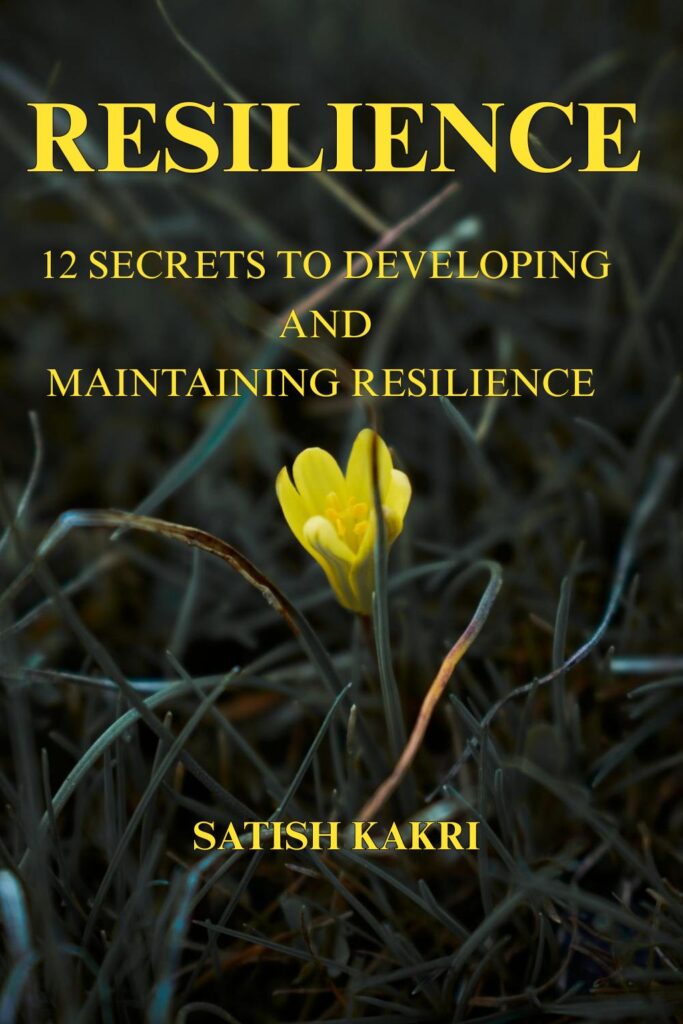Positive Reinforcement Strategies to Foster Resilience in Adults with a Growth Mindset

The Importance of Resilience
Resilience plays a pivotal role in the development of both personal character and professional skills. For adults, particularly those in Nigeria, embracing a growth mindset—the belief that talents and intelligence can evolve with effort—can pave the way to overcoming life’s numerous hurdles. Resilience is not merely the ability to withstand challenges but also the capacity to spring back stronger from setbacks, turning adversity into a stepping stone for success. This growth-oriented perspective becomes increasingly vital in a country facing numerous economic and social challenges.
Understanding Positive Reinforcement Strategies
To effectively cultivate resilience, one must grasp the essence of positive reinforcement strategies. These techniques are designed to promote desired behaviors while providing motivation through rewards, greatly enhancing an individual’s resilience. Here are a few impactful examples:
- Verbal Praise: A simple yet profound method, verbal affirmations such as “You did a great job!” can significantly boost an individual’s confidence, especially in a setting where self-doubt might prevail. In a culturally rich environment like Nigeria, incorporating local expressions of appreciation can enhance the effectiveness of this strategy.
- Goal Setting: Establishing small, manageable goals facilitates a sense of achievement. For instance, someone working towards obtaining a higher education degree may set weekly study targets. Each achieved target not only builds confidence but also reinforces the notion that effort leads to success.
- Social Support: Building connections within one’s community can fortify collective resilience. Engaging in community groups or support circles—common in various Nigerian cultures—provides individuals with a network of encouragement, making challenges seem more surmountable when faced together.
Cultivating an Environment of Growth
Incorporating these strategies into daily life contributes to a nurturing environment where individuals feel empowered to face challenges head-on. Nigeria’s rich tapestry of cultures often places a premium on community, yet societal expectations can inhibit risk-taking and personal expression. Thus, focusing on positive reinforcement not only strengthens individual resilience but also fosters a national culture that prioritizes growth and perseverance.
As we delve deeper into effective methods for resilience building, it is important to consider tailored strategies that resonate with the unique cultural contexts and the distinct challenges faced by adults in Nigeria. Efforts to promote resilience through a growth mindset can lead to widespread societal benefits, creating a more empowered populace ready to tackle the future with optimism and determination.
YOU MAY ALSO LIKE: Read read another article

Effective Positive Reinforcement Techniques
To fully harness the power of positive reinforcement strategies, it is essential to explore specific techniques that can significantly enhance resilience among adults with a growth mindset. These strategies not only empower individuals in their personal journeys but also contribute to a broader cultural shift towards embracing challenges and fostering perseverance. Here are some effective reinforcement methods that resonate within the Nigerian context:
- Recognition of Progress: Celebrating small victories is a fundamental aspect of positive reinforcement. When individuals acknowledge their progress—be it in academic pursuits, career milestones, or personal growth—they cultivate a mindset that appreciates effort. Recognizing these achievements through community gatherings or family celebrations can reinforce the belief that progress, no matter how small, is worthy of celebration.
- Constructive Feedback: Providing feedback is vital to the growth process. Rather than focusing solely on what needs improvement, combining constructive criticism with positive observations can help adults understand that failures are merely stepping stones to success. For example, a mentor in a workplace could highlight both the strengths and areas for improvement in a team member’s project, fostering a culture of learning rather than blame.
- Peer Acknowledgment: Encouraging peers to share positive experiences or affirmations can boost morale within communities. In Nigeria, where communal ties are strong, creating platforms for individuals to share triumphs or supportive messages can sow the seeds of resilience. This could be through social media shoutouts or community recognition events, allowing individuals to feel seen and appreciated.
Creating a Culture of Encouragement
Establishing a supportive environment that endorses positive reinforcement not only aids individual resilience but also nurtures a culture that values growth. In many Nigerian communities, where tradition and norms heavily influence behavior, it is crucial to create spaces for dialogue and encouragement. This means empowering individuals to share their fears and aspirations openly, fostering an atmosphere that celebrates vulnerability as a component of strength.
Moreover, it is imperative to understand the cultural nuances that can be leveraged when implementing these strategies. For example, incorporating local proverbs or idiomatic expressions that emphasize resilience and growth can enhance understanding and relatability. Such cultural integration reinforces the idea that resilience is a shared community value, deeply rooted in the fabric of Nigerian society. Thus, fostering resilience through a growth mindset not only transforms individual lives but can ignite a collective movement towards a future characterized by optimism and determination.
As we further explore these strategies, it becomes evident that integrating positive reinforcement into daily practices can significantly elevate the psychological well-being of adults. Each small victory contributes to the larger narrative of resilience, which is crucial in navigating life’s complexities.
| Strategy | Advantages |
|---|---|
| Recognition of Efforts | Encourages continued growth by celebrating small wins. |
| Constructive Feedback | Promotes learning opportunities and builds confidence to tackle challenges. |
| Peer Support Systems | Enhances resilience through communal encouragement and shared experiences. |
| Goal Setting | Fosters a sense of achievement and purpose, which drives motivation. |
Employing these positive reinforcement strategies not only cultivates a growth mindset among adults but also establishes a sustainable framework for resilience. Each strategy interacts with personal dynamics, positioning individuals to overcome obstacles effectively. For example, recognition of efforts allows individuals to see their progress, fueling their desire to continue pursuing their goals. Similarly, the use of constructive feedback not only corrects missteps but reinforces the message that growth is possible and valuable. Furthermore, peer support systems offer an environment where individuals can share experiences and challenges, strengthening bonds and providing moral support. Meanwhile, focusing on goal setting contributes to an enhanced sense of purpose and direction in personal endeavors. Embracing these strategies paves the way for adults to develop a robust resilience framework that enables them to navigate through life’s complexities while maintaining a growth-oriented perspective.
LEARN MORE: This related article may interest you
Empowering Individuals through Goal Setting
One of the strongest positive reinforcement strategies that can be employed to foster resilience in adults with a growth mindset is effective goal setting. Goals serve as a roadmap, providing clarity and direction amidst life’s challenges. When individuals set achievable and meaningful goals, it strengthens their belief in their abilities and allows them to celebrate milestones along the way.
In Nigeria, where many individuals might face systemic barriers, spreading awareness about the significance of setting SMART goals—specific, measurable, achievable, relevant, and time-bound—can lead to remarkable changes. Adults can engage in community workshops or online forums where they learn to articulate their aspirations. By collectively establishing goals, one can create a sense of accountability; individuals are more likely to remain committed to reaching their objectives when they share them with others.
Moreover, when celebrating these accomplishments, whether big or small, the impact of positive reinforcement becomes even more pronounced. For instance, community members could create a “goal wall,” where individuals can openly display their targets and achievements, generating collective motivation and support. This practice not only reinforces the belief in one’s capabilities but also nurtures a culture of collaboration, allowing for shared experiences and encouragement.
Harnessing Positive Affirmations
Another strategy that can significantly uplift spirits and foster resilience is the use of positive affirmations. For adults, especially in a society that often emphasizes constraints rather than possibilities, affirmations can counteract negative thoughts and self-doubt. Regularly practicing positive self-talk encourages individuals to reshape their narratives, viewing setbacks as opportunities for growth rather than failures.
Incorporating affirmations into daily routines can include repeating phrases such as “I am capable of overcoming challenges” or “I learn from my mistakes.” Furthermore, integrating these affirmations into spaces of cultural significance—such as local churches, mosques, or community centers—can enhance their resonance. Engaging local leaders to endorse such practices may also amplify their effectiveness. When respected community figures share positive affirmations, they lend credibility to the concepts and further encourage collective participation.
Mentorship and Role Models
Mentorship plays a crucial role in reinforcing resilience. Having access to role models who embody a growth mindset can serve as a potent form of positive reinforcement. These mentors offer guidance and support, as well as share their personal struggles and the strategies they used to overcome obstacles. This can help demystify the process of growth and resilience, illustrating that everyone faces setbacks.
In the Nigerian context, establishing mentoring programs that connect youth and adults with experienced professionals in various fields can lead to transformative outcomes. Through storytelling sessions and interactive workshops, mentors can impart lessons learned along their journeys, reinforcing the idea that resilience is developed through experience. Additionally, incorporating traditional narratives or folktales that highlight resilience can make these sessions more relatable, inspiring individuals to adopt a growth mindset.
Ultimately, by fostering environments that prioritize goal setting, positive affirmations, and mentorship, adults can be empowered to actively pursue resilience. This alignment of individual aspirations with community support creates a powerful synergy, heightening the likelihood of sustained personal growth and communal strength.
SEE ALSO: Click here to read another article
Conclusion
The journey toward fostering resilience in adults with a growth mindset is served best through intentional strategies such as goal setting, positive affirmations, and mentorship. These positive reinforcement strategies empower individuals to navigate life’s challenges with strength and determination, transforming obstacles into opportunities for personal growth. In a diverse and sometimes challenging landscape like Nigeria, these strategies can be particularly transformative, as they not only support individual aspirations but also cultivate a robust community spirit.
As our exploration highlights, setting SMART goals provides a much-needed framework that instills clarity and focus. It is essential for individuals to engage in shared goal-setting experiences, creating a network of accountability that elevates commitment levels. Additionally, the incorporation of positive affirmations serves as a powerful tool to shift mindsets from self-doubt to self-empowerment, encouraging a narrative of resilience and adaptability.
Furthermore, the role of mentorship cannot be overstated; guidance from seasoned role models offers invaluable insights that can greatly shape one’s resilience journey. By actively participating in community mentorship programs, individuals not only gain personal insights but also contribute to a culture of support and encouragement. This collective commitment to resilience, underpinned by positive reinforcement, can significantly alter the trajectory of individuals and communities alike.
In conclusion, by embracing these strategies and leading with accountability, positivity, and mentorship, adults can cultivate a landscape of resilience that not only enriches their personal lives but also empowers their communities to thrive. This multifaceted approach remains vital in nurturing a society where challenges are met with strength, growth, and unwavering determination.
Related posts:
Positive Reinforcement and Conflict Management: How to Foster a Growth Mindset in Diverse Communitie...
How Positive Reinforcement Can Improve Academic Performance in Underperforming Students
Positive Reinforcement in Mentoring Programs: Boosting Growth Mindset among Young Professionals
The Integration of Positive Reinforcement in Sports Practice: Fostering a Growth Mindset in Athletes
How Positive Reinforcement Can Transform a Growth Mindset in Children
Positive Reinforcement Strategies for Adults: Cultivating a Growth Mindset in the Workplace

Linda Carter is a writer and self-discipline expert specializing in personal growth, habit building, and goal achievement. With extensive experience helping individuals develop focus, consistency, and resilience, Linda shares her knowledge on our platform. Her goal is to empower readers with practical advice and strategies to cultivate self-discipline, make intentional choices, and achieve success in both their personal and professional lives.